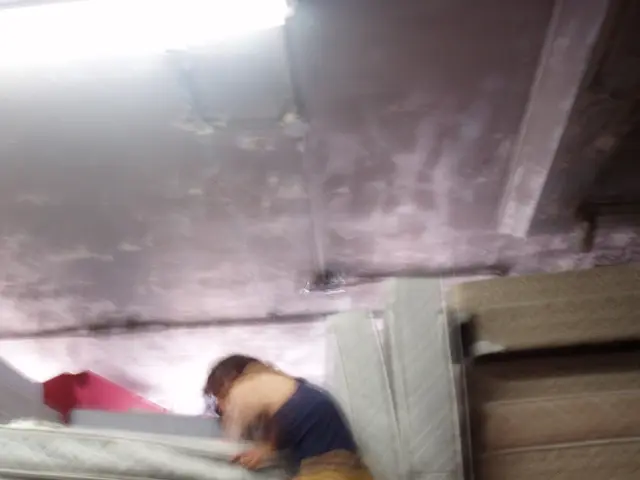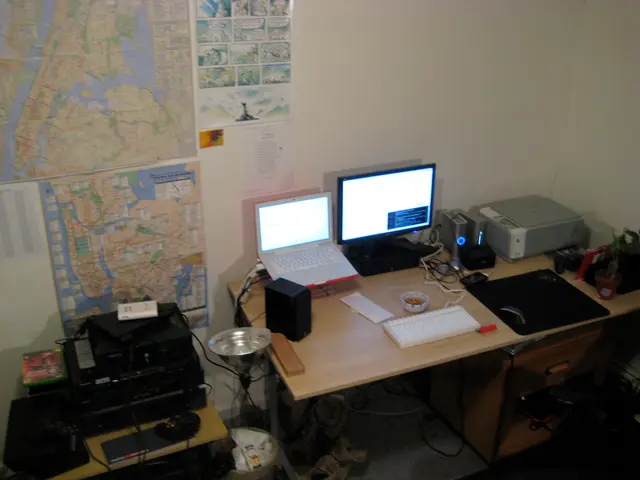Spain defends its real estate sector, denying claims of an unregulated "free-for-all" following enforcement actions against Airbnb.
Let's Dish the Spanish Scene: Airbnb Squared Away
Hey there, buddy! Here's the lowdown on what's happening with Airbnb in Spain.
Spaniard officials ain't playin' around when it comes to Airbnb. Last month, they dropped a heavy hammer, ordering that 66,000 questionable vacation rentals be yanked from the platform due to skipped license listings, inaccurate info, and missing apartment owners' details. And guess what? Airbnb is whining about it and trying to appeal!
Spain's a popular tourist spot, with a staggering 94 million international visitors last year. But the housing market's gone haywire in cities like Madrid and Barcelona, leading to some serious heat against those short-term vacation rentals. Airbnb's the most famous and ubiquitous fish in this sea.
Spanish representatives reckon there's a link between Airbnb's rise and increased housing costs and rent rates. Pablo Bustinduy, the Minister of Social Rights, Consumer Affairs, and Agenda, confirmed as much to the Associated Press.
But wait, here's the kicker. Spain has a severe housing shortage, according to a report from the Bank of Spain. In tourist hotspots like the Canary and Balearic Islands, over half of the housing stock's dedicated to tourism accommodations or properties owned by non-residents.
So, what's the deal? Tourism's important for the Spanish economy, but it ain't all rosy. Bustinduy emphasized that tourism must be sustainable and not encroach on the Spanish people's constitutional rights, specifically their right to housing and well-being.
Spain's been dealing with plenty of mass protests demanding more action on housing, with signs decrying Airbnb and calling for "Airbnb Out of Our Neighborhoods". Bustinduy reckons there needs to be a balance between residents' rights and economic activities.
Regional governments are also joining in on the action. For instance, Barcelona's plannin' to eliminate 10,000 licensed apartments as short-term rentals by 2028, to save housing for locals. Airbnb won't be removing the vacation rentals immediately while their appeal's still in the courts.
Airbnb's countered by saying they're just a middleman, and they ain't responsible for enforcing regulations. Bustinduy argues that tech companies like Airbnb should comply with democratically-established regulations, and they ain't gonna get a free pass just because they're digital.
Bustinduy also clapped back at low-cost airlines, who Spain's been trying to get to charge for carry-on luggage. Last year, they fined five low-cost airlines $179 million for charging for carry-on baggage! According to Bustinduy, it's all about protecting consumers.
Extra Insights:- The Spanish government intends to introduce a new law in July 2025 that requires all short-term rental hosts to register their properties with the National Registry of Short-Term Rentals.- Failure to register could result in listings being removed from platforms like Airbnb.- Spain's aggressive actions towards companies like Airbnb and low-cost airlines are being seen as part of a broader push to hold tech companies and corporations accountable for complying with democratically-established regulations.
- In the midst of Spain's housing crisis, the news of technology-driven companies like Airbnb being held accountable for compliances is making headlines.
- The Spanish government's new law, to be introduced in July 2025, will require all short-term rental hosts to register their properties, marking a significant step in technology regulation in Spain.








